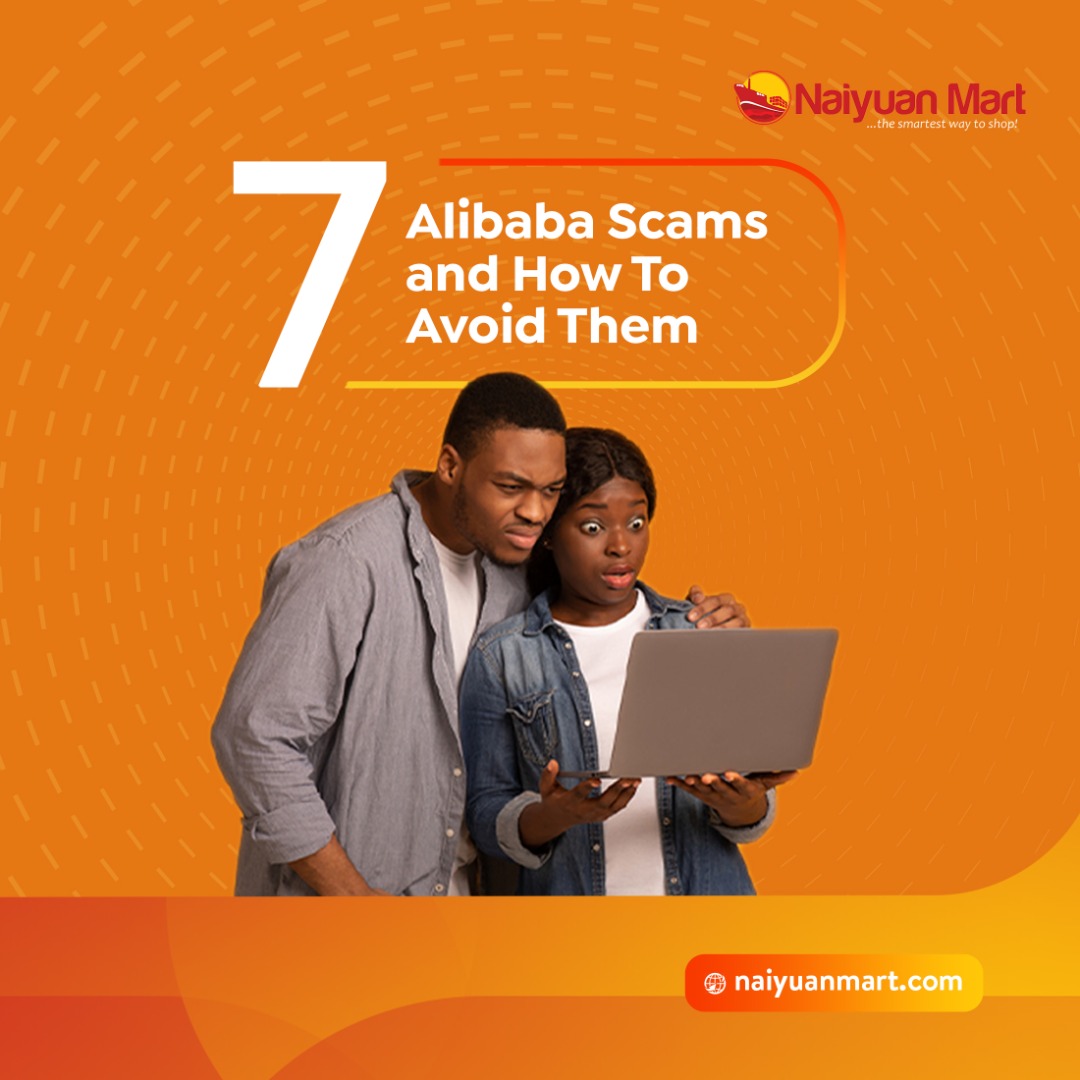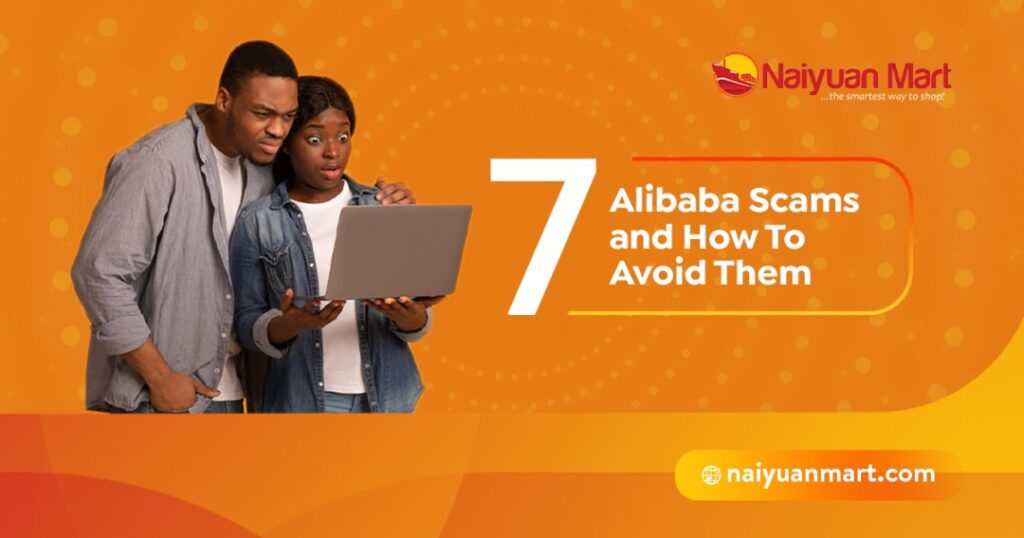7 Types of Alibaba Scams and How To Avoid Them


Alibaba is one of the largest and leading Chinese eCommerce platforms in the world. Alibaba Group Holding Limited, also known as Alibaba Group and Alibaba.com, is a Chinese multinational technology company specializing in e-commerce, retail, Internet, and technology. Founded on 28 June 1999 in Hangzhou, Zhejiang, the company provides consumer-to-consumer (C2C), business-to-consumer (B2C), and business-to-business (B2B) sales services via web portals, as well as electronic payment services, shopping search engines and cloud computing services. It owns and operates a diverse portfolio of companies around the world in numerous business sectors. Find more details about the company on Wikipedia. One of the biggest fears of importers is to fall victim to fraud and lose all their money, especially when it involves wiring money to a foreign account. Even though the transaction may be traceable, it is a waste of time, energy and effort to try to recover. But truth be told, based on evidence and cultural uphold of the Chinese, it is rare to be scammed in China. However, many fraudsters have engaged a lot of importers on the platform and the scams are increasingly on the rise. The goal of this article is to show these scams, how to identify them and ways to avoid them so you don’t fall victim to these importation frauds.
However, as legit as Alibaba is, there have been reported and proven cases of scams being perpetrated on the platform. Today, we are going to show you the 7 most common types of scams on www.alibaba.com and how to avoid them so you won’t fall prey and lose your money and/or goods.
1. Payment Scam:
This is the most dangerous scam every importer should avoid. It is a situation where a hacker hacks into the email of the company or supplier and sends a message to customers that there is a new update of account details and that they should pay into a new account. This type of scam is very common as many importers have fallen for it.
This is how the scam works: From the supplier sent email box, the scammer downloads a recently issued Proforma Invoice and makes their own versions – with a few tweaks. It looks exactly like the “real” Proforma Invoice – the only slight difference being the bank account details.
The scammer simply replaces the bank account beneficiary and the bank account number. What happens next is that the buyer wires the money to the ‘wrong’ bank account – operated by the scammer. Then the supplier won’t ship your goods because he didn’t get any money, meanwhile you as an importer will be waiting in vain for your goods not knowing that you have paid into a scammer’s account. By the time you realize what has happened, the scammer is long gone and almost impossible to track down.
How to avoid payment scam:
Compare the new beneficiary’s name to the supplier’s name on alibaba.com. If it differs, it is a scam!
Alternatively, importers can use Alibaba Trade Assurance when paying suppliers, in order to ensure that the money will end up in the right bank account.
Use a Chinese procurement company like Naiyuan Mart to verify and pay suppliers on your behalf. This way, you pay into the naira bank account of Naiyuan Mart and they verify and sort out your suppliers for you without you worrying or falling victim to fraud.
2. Certification Scam
What this scam means is that you will see a fake industry certificate, company certificate or operation license. The scammers use a fake certificate to prove the legitimacy of their company and this is quite rampant because mamy importers do not understand Chinese language written on these certificates so it is very easy to fall for this kind of fraud as they look real because scammers often use photo editing softwares to change the names.
How to avoid certificate scam:
Research about relevant certificates particular to your kind of product and the name of the company on Alibaba.
Ask suppliers to send documents of their operating license and other relevant certificate
Use a China-domiciled procurement company like Naiyaun Mart to verify your suppliers for you.
3. Low-Price Attraction Scam-
What this kind of scam entails is that you get branded items at ridiculously low prices. You will see Apple Macbook or Sony cameras for prices that are ridiculously cheap. The scammers often attract with this kind of tactic so unsuspecting importers will fall prey. They sometimes also claim they have connections with the factory, that’s why they are getting it for lower prices than the average. Do not fall for this. Infact report such an account or supplier to Alibaba if you can.
How to avoid this scam:
Don’t buy any kind of branded products on Alibaba. Because brand products have their own official sales channels, no Alibaba supplier has the right to sell them. Do not trust any of these suppliers’ words. Just step away quickly!
Naiyuan Mart has a luxury inner circle for importers who want to have access to and sell branded products. Learn more here.
4. Product Quality Scam
You know that popular slang where people say that if a product is from China then the product is fake? Well, it’s partially true! This scam prevails when you do not know how to verify the quality of what you want to buy. It is a scam where what you order is different from what you get.
In this case you get sub-standard products of low or inferior quality. This happens a lot and many importers have fallen for this fraud. Here’s a viral example of an inferior quality product. Here the victim lost $32,000 to a product scam. Check here for the full gist. In some cases, the sample product will be great and awesome, but after you make payment for the bulk supplies, the eventual product will be of poor quality.
How to avoid this scam:
Verify the Chinese supplier before making payment. Niayuan mart can help with that.
Have your own procurement agent do the agreement and transaction on your behalf. Again, Naiyuan Mart can represent you and procure quality goods from you from suppliers.
Naiyuan mart can help you do a quality assurance check before your product leaves China. You may even get this service for FREE if you use any of our services. You don’t have to pay an additional fee for this.
5. Trade Assurance Scam
Trade assurance scam is also on the rise recently. The way it happens is that suppliers agree to use the trade assurance with you, by agreeing to get paid by Alibaba escrow channel. Then after they have attracted you, they begin to ask you to pay into a different account. They threaten that if you don’t pay into this new account, they won’t supply you. They can also lie that the previous account has issues and if you want to get your goods, you should pay into an alternative account.
How to avoid this scam:
The best way to avoid this type of scam is to insist on Trade Assurance with them. Stand your ground, and if they insist otherwise, you tell them to leave.
Check the new account to see if it is genuine, Naiyuan mart can help you do this or even pay suppliers on your behalf if you can’t do this by yourself.
Ensure a proper agreement is signed between you and the supplier, use a procurement agent to get this done legally. Again, Naiyuan Mart can help you do this.
6. Special Sales Rep Scam
Many importers often fall victim to this kind of fraud because of the special treatment the so-called sales rep gives them. Sometimes, they offer discounts so you can pay faster and not suspect anything. They even lure you with a picture of them wearing a branded t-shirt of the company in case you want to check them out. This salesperson often tells you that they are leaving the company to start theirs and all other lies. The trick is to make you send money to their personal accounts and dupe you!
How to avoid this scam:
Never agree to pay into a personal account of any sales rep
Do your background check on companies before doing business with them
Confirm supplier legitimacy using the help of Naiyuan Mart.
7. Fake/Rock Product Shipment
This is very common too. It is a situation where they pack rocks or crap with a few quantities of your orders or supplies. In most cases, they arrange the shipment to look unsuspecting. Most of the shipment will be packed properly to be accessible for inspection while the bulk of the container will be crap or rocks inside the shipment. Many importers, especially new ones fall for this scam because they are shown the container of the truck and they assume the truck has genuine products not knowing that more than half of the packed containers are crap.
How to avoid this scam:
Have your goods inspected by a trusted procurement agent
Make sure your quantity and quality assurance check is done by a third party not necessarily the supplier.
Have your supplier send your goods to an independent warehouse for proper checking.
In conclusion, the Alibaba scam is still happening especially to a lot of African importers because of the ignorance of how to do business with Chinese suppliers. This is why it is important to seek help and go through the right channel of procuring goods from China.
You can also check out this website that has a list of blacklisted Alibaba suppliers. You can go through it to see if you are dealing with a fake or real supplier. Check supplierblacklist.com
Naiyuan mart is a leading trusted sourcing and procurement company, domiciled in both China and Nigeria, that you can rely on to help you get your goods from China. Not only can they procure for you, they can also help you verify suppliers, pay suppliers, keep your goods in their warehouse, help you do a quality and quantity assurance check and ship your goods for you. To learn more about Naiyuan Mart click here
You can also download our FREE EBOOK titled EXPERT IMPORTATION GUIDEBOOK.

1 comment on "7 Types of Alibaba Scams and How To Avoid Them"